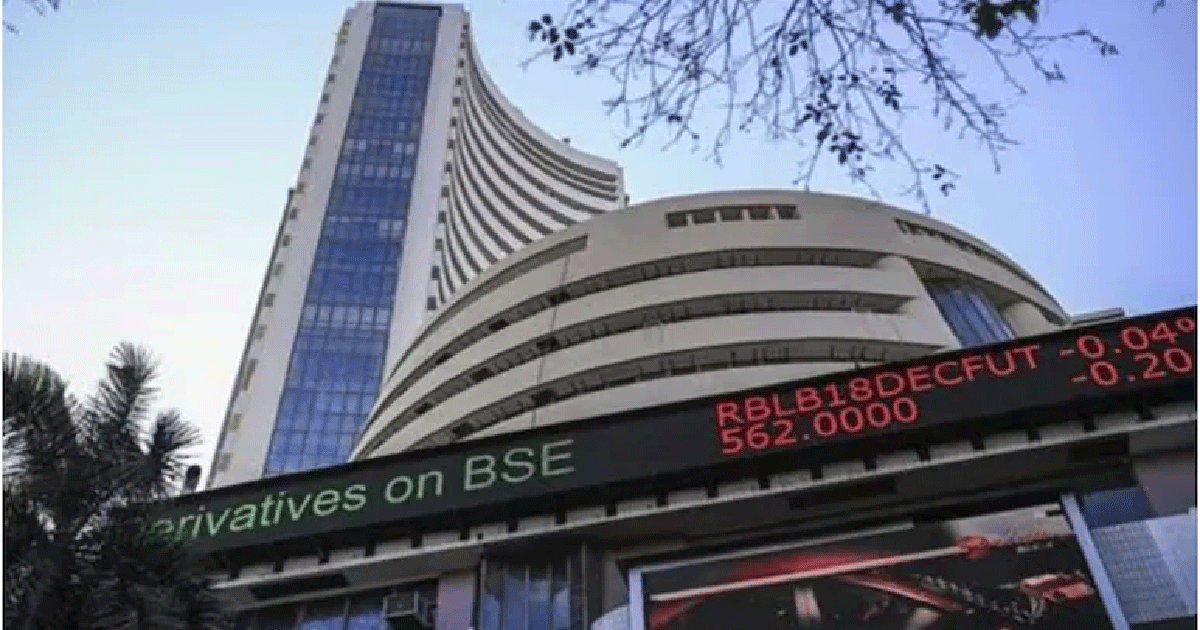Tech
Students globally express concerns about ChatGPT’s reliability: Study

New Delhi, Feb 6: Students globally have reported concerns about ChatGPT’s reliability, its potential to erode critical thinking skills, and ethical issues around its use, such as cheating and privacy, according to a new study.
An international study involving more than 23,000 higher education students, and published in the journal PLOS One, revealed trends in how they use and experience ChatGPT, highlighting both positive perceptions and awareness of the AI chatbot’s limitations.
Prior research suggests that ChatGPT can enhance learning, despite concerns about its role in academic integrity, potential impacts on critical thinking, and occasionally inaccurate responses.
However, the few studies exploring student perceptions of ChatGPT in higher education have been limited in scope.
Dejan Ravselj of the University of Ljubljana, Slovenia, and colleagues designed an anonymous online survey study aiming to provide a broader view.
Analysis of the survey results revealed several trends.
For instance, overall, participants tended to feel positively about ChatGPT, finding it valuable for brainstorming, summarising texts, academic writing, and simplifying complex information.
However, they also reported concerns about ChatGPT’s reliability.
Interestingly, less than a third of students (29 per cent) reported using ChatGPT for brainstorming, and only one in ten (11 per cent) for creative writing.
However, most students (70 per cent) found ChatGPT interesting to use, and a quarter (25 per cent) found it easier to interact with ChatGPT than with colleagues.
According to the study, the students’ perceptions varied across sociodemographic and geographic factors.
For instance, those in lower-income regions were more likely to perceive ChatGPT as essential support in the context of limited educational resources, while students in high-income regions placed greater value on ChatGPT’s innovative and advanced features.
The findings could help inform the design of higher education curricula and policies to harness the benefits of ChatGPT equitably across diverse student populations.
Future research could address some of this study’s limitations, such as by tracking students’ perceptions over time and including more students from low-income countries, said the authors.
Business
Sensex, Nifty open flat with positive bias amid global optimism

Mumbai, Oct 9: Indian stock markets opened flat but with a slight positive tone on Thursday, taking cues from upbeat global trends.
At the opening bell, the Sensex was up 17 points, or 0.02 per cent, at 81,791, while the Nifty gained 17 points, or 0.07 per cent, to trade at 25,063.
“From a technical standpoint for Nifty, a sustained move above 25,150 could open the door for an upside toward 25,200–25,250,” analysts said.
“On the downside, immediate support is placed around 24,950–24,900, which may serve as potential accumulation zones for long positions,” they added.
“Overall, the index is expected to remain range-bound between 24,900 and 25,200 in the near term,” experts mentioned.
Broader markets also saw some strength, with the Nifty MidCap index rising 0.3 per cent and the Nifty SmallCap index advancing 0.21 per cent.
On the institutional front, Foreign Institutional Investors (FIIs) extended their buying streak for the second consecutive session on October 8, purchasing equities worth Rs 81 crore, while Domestic Institutional Investors (DIIs) bought equities worth Rs 329 crore on the same day.
Asian markets traded higher after the S&P 500 and Nasdaq Composite hit record closing highs overnight on Wall Street.
Investor sentiment also improved after US President Donald Trump announced that Israel and Hamas had agreed to the first phase of a US-brokered peace plan to pause fighting in Gaza and allow the release of hostages and prisoners.
According to experts, traders remained cautiously optimistic, tracking global cues and geopolitical developments.
“The results season starting today will be keenly watched by the market. IT stocks have witnessed some recovery from the bottom, but the headwinds for the segment continue to be strong,” market experts said.
“Banking stocks have largely remained range bound on muted earnings expectations. The NIM pressure and rising delinquencies in the unsecured loan segments will weigh on banking results generally. So, watch out for the out-performers in the segment,” they added.
Business
India, Japan can diversify trade basket, open new frontiers with renewed efforts: PM Modi

Tokyo, Aug 29: Hailing the robust India-Japan economic and trade partnership, Prime Minister Narendra Modi on Friday said with renewed efforts, both nations can diversify their trade basket, make it more balanced, and open up new frontiers as well.
In an interview with Japanese newspaper The Yomiuri Shimbun, the Prime Minister said we must aim bigger and remain ambitious.
“The synergies across governments, businesses and people can create scale and speed in our economic partnership. As the world’s leading economies, we have been contributing to each other’s growth, competitiveness and dynamism,” PM Modi told the publication.
Japan has been a trusted partner in India’s infrastructure development across generations. The country has also been a leading source of foreign direct investment (FDI) for India in key sectors, including automobiles, electronics, telecom, chemicals, finance, and pharmaceuticals.
According to PM Modi, the number of Japanese firms in India has grown steadily to around 1,500, while more than 400 Indian companies operate in Japan.
“Clearly, this is only the beginning — the real potential is much higher,” he noted.
“We maintain important trade relations, but it has not yet reached the levels envisaged under our CEPA (Comprehensive Economic Partnership Agreement)… The 20th century saw Japan emerge as a major partner in India’s infrastructure development. I am confident that the 21st century will see Japan as a major partner in India’s innovation, manufacturing, and global value chains,” the Prime Minister emphasised.
On semiconductors, PM Modi told the publication that India’s semiconductor sector is on the cusp of transformation.
“We have put in place a comprehensive regulatory and policy framework, backed by incentives, to build a strong semiconductor and display ecosystem. Already, six semiconductor units are taking root in India, with four more on the way. By the end of this very year, ‘Made in India’ chips will be in the market, a clear demonstration of India’s design and manufacturing capabilities,” the Prime Minister said.
Japanese companies, with their technological strengths and global leadership, can play a pivotal role in this journey, he said, adding that a strong beginning has already been made.
“By combining India’s scale and capabilities with Japan’s advanced technologies, we can build a resilient and trusted semiconductor value chain,” PM Modi stressed, adding that this collaboration will support the technological ambitions of both our countries and enhance global supply chain security.
“I see semiconductor cooperation emerging as a major pillar of the India–Japan partnership. After all, in this digital century, chips are not just about computers, they are about competitiveness, credibility and confidence in the future,” he mentioned.
Some Japanese companies are positioning their production bases in India as hubs for third-country markets such as Africa.
According to PM Modi, India has seen multi-faceted reforms which make manufacturing in India easier than ever before.
“We have removed compliance burdens, rolled out incentives and ensured a large skilled workforce for companies to set base in India. Many global companies, including those from Japan, are setting up their production in India not only to cater to our domestic market, but also for the world,” he highlighted in his response.
Japanese automaker Suzuki Motor Corporation this week announced it will invest Rs 70,000 crore in India over the next five to six years. The investment will be used to increase production, introduce new car models, and protect its leadership position in the world’s third-largest automobile market.
“Just a couple of days back, I was at the Suzuki plant in India where we flagged off electric vehicles to be exported to a hundred countries, including Japan,” said PM Modi.
Business
Indian equity indices decline sharply over US tariff concerns

Mumbai, Aug 28 : The Indian equity indices fell sharply to end the session nearly one per cent lower on Thursday — a day after the 50 per cent US tariffs on Indian goods came into effect.
Sensex ended the session at 80,080.57, down 705 points or 0.87 per cent. The 30-share index started the session in negative territory at 80,754 against last session’s closing of 80,786.54 amid selling across the sectors. The Index further extended the losing momentum to hit an intra-day low at 80,013.02 following the implementation of US tariffs on Indian goods.
Nifty settled at 24,500.90, down 211.15 points or 0.85 per cent.
“Domestic equities ended lower as pessimism took hold following the implementation of tariffs on Indian goods, dampening investor sentiments. While the cotton import duty exemption briefly lifted hopes of policy support to counter tariff impacts, triggering a short-lived intraday recovery, investor mood remained fragile, with large caps declining and mid and small caps underperforming amid risk-off sentiment,” said Vinod Nair, Head of Research, Geojit Investments Limited.
Most sectors, including Auto, IT, FMCG, and Metals, traded in the red as investors turned to profit-booking from recent gains, while consumer durables outperformed, likely supported by GST rationalisation and expectations of festive demand, Nair added.
HCL Tech, TCS, Power Grid, Infosys, Hindustan Unilever, HDFC Bank, ICICI Bank, Bharati Airtel, Mahindra and Mahindra, Trent, Tata Motors, Sun Pharma, NTPC, BEL, Eternal and SBI were the top losers from the Sensex pack. While Titan, L&T, Maruti Suzuki, and Axis Bank were top gainers.
The majority of sectoral indices settled in negative territory amid selling pressure. Nifty Fin Services dropped 312.30 points or 1.20 per cent, Nifty Bank fell 630.10 points or 1.16 per cent, Nifty Auto declined 136.80 points or 0.54 per cent, Nifty FMCG closed 574.05 points or 1.02 per cent, and Nifty IT slipped 574.45 points or 1.59 per cent.
Broader indices followed suit as well. Nifty Small Cap 100 dipped 254.25 points or 1.45 per cent, Nifty Midcap 100 fell 718.70 per cent or 1.45 per cent, and Nifty 100 closed 235 points or 0.93 per cent lower.
Rupee traded weakly as selling pressure in capital markets deepened, with FII flows continuing to remain negative amid persistent concerns on India’s growth outlook and fiscal deficit.
“The imposition of a 50 per cent US tariff has raised uncertainty over exports, weighing on overall sentiment, until there is clarity on alternatives either through negotiations with the US or by striking trade agreements with other nations — investors are likely to stay cautious,” said Jateen Trivedi of LKP Securities.
The rupee is expected to remain under pressure with a near-term range of 87.25–88.25, he added.
-

 Crime3 years ago
Crime3 years agoClass 10 student jumps to death in Jaipur
-

 Maharashtra1 year ago
Maharashtra1 year agoMumbai Local Train Update: Central Railway’s New Timetable Comes Into Effect; Check Full List Of Revised Timings & Stations
-

 Maharashtra12 months ago
Maharashtra12 months agoMumbai To Go Toll-Free Tonight! Maharashtra Govt Announces Complete Toll Waiver For Light Motor Vehicles At All 5 Entry Points Of City
-

 Maharashtra1 year ago
Maharashtra1 year agoFalse photo of Imtiaz Jaleel’s rally, exposing the fooling conspiracy
-

 National News1 year ago
National News1 year agoMinistry of Railways rolls out Special Drive 4.0 with focus on digitisation, cleanliness, inclusiveness and grievance redressal
-

 Maharashtra11 months ago
Maharashtra11 months agoMaharashtra Elections 2024: Mumbai Metro & BEST Services Extended Till Midnight On Voting Day
-

 National News1 year ago
National News1 year agoJ&K: 4 Jawans Killed, 28 Injured After Bus Carrying BSF Personnel For Poll Duty Falls Into Gorge In Budgam; Terrifying Visuals Surface
-

 Crime12 months ago
Crime12 months agoBaba Siddique Murder: Mumbai Police Unable To Get Lawrence Bishnoi Custody Due To Home Ministry Order, Says Report












